To enter a shop and chat with the person behind the counter is a rare experience for deaf and hard of hearing people.
A growing number of deaf-friendly and sign-language-friendly businesses — those that use American Sign Language (ASL) as their primary form of communication — are opening across the United States, thanks to expanding opportunities in education and financing for the deaf and hard of hearing community. Molly Moon’s, an ice cream chain in Seattle, trains its hearing staff in ASL. A brewery in Maryland, Streetcar 82 Brewing Company, is deaf-owned and offers classes in ASL to customers.
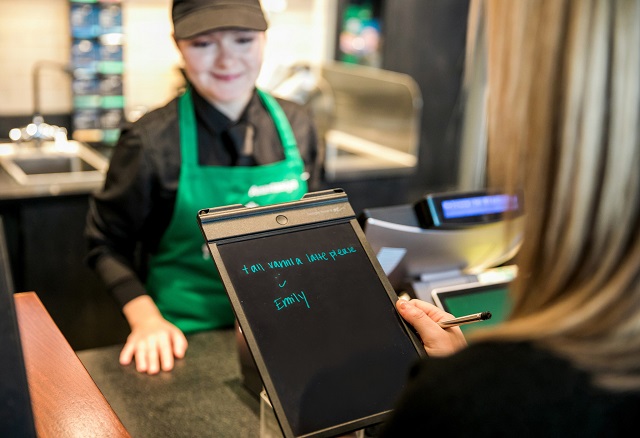
A customer makes an order at the Starbucks coffee chain’s first U.S. signing store in Washington. (© Joshua Trujillo/Starbucks)
A Starbucks coffee shop that opened in October 2018 on the H Street corridor in Washington is the first ASL-centric store in the United States for the Starbucks chain.
At the Signing Starbucks, as it is called, employees take orders in ASL from students and professors of nearby Gallaudet University, the world’s first university catering primarily to deaf and hard of hearing students. Hearing customers write their orders on electronic pads. (Bonus: no misspelled names when orders are delivered to customers.)
“We are making history,” Howard Rosenblum, chief executive officer of the National Association of the Deaf, said at the store’s opening celebration. “Please lead the way for other corporations and other businesses to open other signing stores and restaurants.”
A business qualifies as deaf-friendly when it markets to the deaf community, provides customers with clear visual information, makes an effort to train hearing staff in sign language and has policies that encourage hiring and training deaf people.
Hiring deaf and hard of hearing workers, particularly to management positions, is key for the community to advance in business, said Tom Baldridge, a business professor at Gallaudet University.
Baldridge leads Gallaudet students in teaching Washington businesses, like those on nearby H Street, how to adopt deaf-friendly practices. He also teaches the students how to open businesses of their own.

Bartender Zane Pedersen signs with customers Hollie Fallstone (center) and Kate Fetzer (right) at Streetcar 82 Brewing Company in Maryland. (State Dept./D.A. Peterson)
Streetcar 82, the Maryland brewery, got its start by winning the Gallaudet Innovation and Entrepreneurship Institute’s inaugural business-pitch competition in 2016. “This gave us the confidence,” co-owner Sam Costner told the university. “It motivated us.”
Baldridge added, “Hiring and training deaf and [hard of hearing] people to management positions provides clear and concrete role models for business and young deaf people to emulate.”
***
Visiting a deaf-friendly coffee shop? Here’s some American Sign Language to try out!

American Sign Language for “coffee”
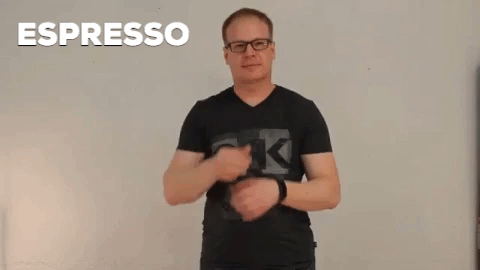
American Sign Language for “espresso”
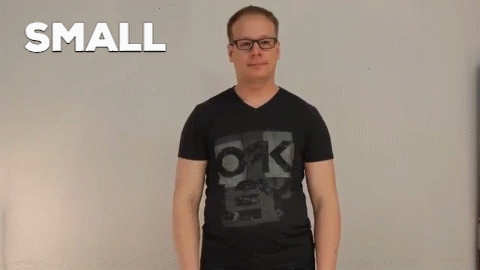
American Sign Language for “small,” “medium” and “large”
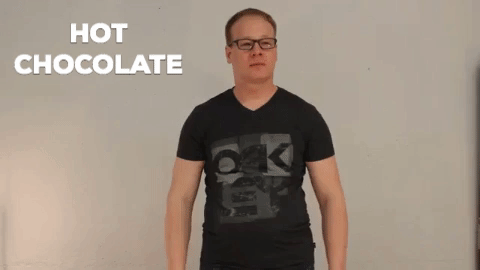
American Sign Language for “hot chocolate”
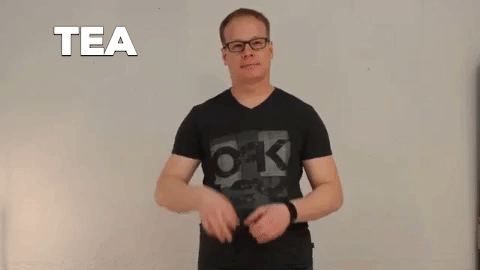
American Sign Language for “tea”
Josh Kelman is a member of the deaf community in the Washington area.
Banner image: From left, Deb Skjeveland, Steven Doleac, Hollie Fallstone and Kate Fetzer converse using sign language at Streetcar 82 Brewery Company in Maryland. (State Dept./D.A. Peterson)
The original article is here on ShareAmerica.







COMMENTS0
LEAVE A COMMENT
TOP